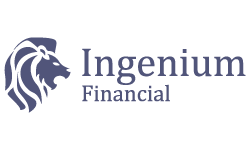
Portugal Golden Visa Program 2025: New Rules & Investment Funds
The Portugal Golden Visa program remains a popular route to residency for non-EU citizens seeking opportunities in Europe. This article delves into the updated regulations and investment options available in 2025, providing a comprehensive overview for potential applicants interested in golden visas and navigating the evolving landscape of visa programs.
Understanding the Golden Visa Portugal Program in 2025
Overview of the Golden Visa Program
The Golden Visa Portugal is a residency-by-investment program that grants non-EU citizens a residence permit in Portugal by making qualifying investments. The program aims to attract foreign investment and foster economic growth within the country. Understanding the nuances of this program is crucial for anyone considering it as a pathway to residency and potential citizenship, especially given recent changes affecting golden visas and how the visa program operates.
Changes to Investment Options
Significant changes to the Portugal Golden Visa program came into effect, most notably the removal of real estate purchases as a qualifying investment route. The focus has shifted towards liquid or cash investments in areas deemed economically or culturally valuable to Portugal. These changes impact the range of options available to applicants seeking golden visas, requiring careful consideration of the revised investment landscape under the new visa program.
Requirements for Applicants
To qualify for the Golden Visa Portugal in 2025, applicants must meet specific requirements related to their chosen investment route, ensuring they understand the citizenship or permanent residency options. These requirements often include minimum investment amounts, job creation targets, and maintenance of investment for a specified period as part of the investment program. Prospective golden visa applicants should carefully review the updated criteria to ensure they meet all necessary conditions for securing their golden visas under the current investment program framework.
Investment Routes for the Golden Visa
Investment Funds and Venture Capital
One of the primary investment routes under the updated Golden Visa Portugal program involves making a qualifying investment in approved Portuguese investment funds or venture capital funds. A minimum investment of €500,000 is required, with funds typically focusing on technology and industry sectors. This option channels investment into companies incorporated under Portuguese law, fostering economic development while providing applicants with a pathway to golden visas and residency through compliant visa programs. It’s essential for golden visa investors to carefully assess the specific funds to ensure they meet all criteria outlined by the Portuguese government to qualify for the golden visa. Ingenium Financial offers a full-range support on every step of your Portugal Golden Visa investment process.
Scientific and Technological Research
Another viable investment avenue for obtaining golden visas through compliant visa programs is supporting scientific or technological research initiatives in Portugal. A minimum investment of €500,000 is required to fund investment in research projects that contribute to innovation and advancement within the country. This investment route aligns with Portugal’s efforts to bolster its research and development capabilities, offering applicants an opportunity to invest in cutting-edge projects while meeting the requirements for the golden visa. Detailed due diligence is vital to ensure the research projects meet the specified criteria for visa programs.
Cultural and Heritage Preservation
Investing in cultural or heritage preservation projects presents another pathway to secure golden visas under compliant visa programs. A minimum investment of €250,000 is required to support initiatives that safeguard Portugal’s national heritage, including artistic production, recovery, and maintenance of cultural assets. This option allows golden visa applicants to contribute to the preservation of Portugal’s rich cultural identity while fulfilling the investment requirements for the golden visa. The selection of qualifying projects must align with government guidelines for visa programs to ensure eligibility.
Job Creation Requirements
The Golden Visa Portugal program also offers the option of securing golden visas through job creation. This involves launching a business that creates at least ten full-time jobs in Portugal or investing €500,000 in an existing company that creates or maintains a minimum of five permanent jobs for at least three years. This investment route encourages entrepreneurship and contributes to employment opportunities within the country, fulfilling the objectives of visa programs while providing applicants with a path to residency. The number of jobs and their duration are critical for visa compliance.
Benefits of the Golden Visa Program

Pathway to Residency and Citizenship
The Portuguese golden visa program offers a pathway for golden visa investors to secure residency through various investment options, including fund investment. streamlined pathway to residency and citizenship for non-EU citizens who make a qualifying investment to secure residency by investment. Unlike some other residency options, the golden visa program allows investors to gain residency without the need for continuous employment or business operation. After five years of maintaining residency status, golden visa holders become eligible to apply for Portuguese citizenship, granting them full EU rights and privileges through successful participation in visa programs. This is a significant benefit, making Portugal an attractive destination for those seeking long-term security and opportunity through various visa programs.
Investment Flexibility and Economic Impact
The current structure of the Portuguese golden visa program provides investment flexibility, enabling applicants to choose real estate investment routes that align with their financial goals and interests. By directing funds into sectors such as technology, research, culture, and job creation, the visa programs ensure that investment contributes positively to Portugal’s economic development and facilitates citizenship by investment. Each golden visa application contributes to the country’s growth, offering both economic stimulus and opportunities for foreign investors seeking long-term residency solutions through diverse visa programs.
Visa-Free Travel Advantages
One of the most compelling advantages of obtaining Portuguese citizenship through the golden visa program is the enhanced travel freedom it provides. Portuguese citizens enjoy visa-free access to 187 destinations worldwide, including the Schengen Area, the United States, Canada, and Australia. This level of mobility is invaluable for individuals and families who value international travel, business opportunities, and the ability to explore the world without visa restrictions. The passport that the golden visa enables is one of the most powerful, and sought after because of visa programs.
Comparing the Golden Visa with D7 and D8 Visas
D8 Visa Overview and Requirements
The D8 visa, also known as the Digital Nomad Visa, is tailored for non-EU remote workers who wish to reside in Portugal while maintaining their employment with companies outside of Portugal, making it a potentially viable alternative to those considering obtaining a golden visa.
To qualify for the D8 visa, applicants must demonstrate a consistent monthly income, typically around €3,280-€3,480, and provide proof of accommodation, health insurance, a clean criminal record, and a Portuguese tax number (NIF). Unlike the golden visa program, the D8 visa requires active engagement in remote work and adherence to specific income thresholds, making it suitable for a different profile of applicants than the golden visa programs.
D7 Visa Overview and Requirements
The D7 visa is designed for individuals with passive income, such as pensions, dividends, or rental income, who wish to retire or reside in Portugal and may consider applying for citizenship.
Applicants must demonstrate a stable source of passive income sufficient to support their living expenses in Portugal. Like the D8 visa, the D7 visa requires applicants to become tax residents in Portugal and fulfil minimum stay requirements. Although it offers a pathway to permanent residency and citizenship, it involves more substantial stay obligations compared to the golden visa programs, demanding a greater commitment of time spent in the country.
Advantages of the Golden Visa Over D7 and D8
The Portugal Golden Visa program offers several advantages over the D7 and D8 visas, particularly for individuals seeking flexibility and minimal residency requirements and are able make the appropriate investments in Portugal. Unlike the D7 and D8 visas, the golden visa program does not mandate a minimum monthly income or continuous employment, making it an attractive option for those pursuing residency by investment. Instead, it requires a one-time investment, providing applicants with greater financial freedom and less stringent obligations. This makes the Golden Visa an attractive option for those who value flexibility and want to maintain a global lifestyle while securing residency in Portugal. As mentioned, the golden visa also offers a pathway to EU citizenship.
Navigating the Application Process
Expected Processing Times
Understanding the timeline for processing golden visa applications is crucial for prospective investors. While the quoted application processing time is between 4 to 15 months, delays are expected, particularly with a backlog of applications. Golden visa applicants should be prepared for potentially significant delays and factor this into their plans. Keeping up-to-date with the latest information and being diligent in submitting all required documentation for the visa program can help minimise processing times. The golden visa application timeline can vary based on investment type and volume of applications processed which also influences citizenship eligibility.
Common Challenges and Delays
Several challenges can contribute to delays in the golden visa process and the overall visa application process. These include incomplete documentation, verification of investment sources, and increased scrutiny due to program changes. Communication with legal advisors and consultants can help navigate these challenges effectively in the golden visa process.
Staying informed about potential roadblocks and proactively addressing any issues can expedite the golden visa application process. Successfully navigating these hurdles is key to a smoother experience for golden visa applicants with golden visas and visa programs.
Tips for Successful Applications
To ensure a successful application for golden visas, meticulous preparation and attention to detail are essential. Work with experienced legal and financial advisors to compile all necessary documents accurately and completely for the golden visa process. Ensure the chosen investment meets all eligibility criteria outlined by the Portuguese government.Not sure about the investments? Ask Ingenium Financial. Maintain open communication with the relevant authorities and promptly respond to any requests for additional information. By following these tips, applicants can increase their chances of a smooth and successful outcome through the golden visa process when applying for golden visas.
Conclusion: Is the Golden Visa Right for You?
Assessing Your Financial Situation
Before committing to the Golden Visa Portugal program, Golden visa applicants should carefully assess their financial situation and investment goals.. Determine whether the minimum investment requirements align with your available capital and risk tolerance for making a qualifying investment.
Consider the potential returns on investment and the long-term financial implications of the chosen investment route to live in Portugal comfortably. Understanding your financial capabilities is essential to making an informed decision about pursuing the golden visa as a pathway to residency through compliant visa programs.
Long-Term Benefits of Residency in Portugal
Consider the long-term benefits of obtaining residency in Portugal through the golden visa program. These benefits include access to quality healthcare, education, and social services, as well as the freedom to live, work, and travel within the Schengen Area for golden visa investors. For families, the opportunity to provide children with access to European education and cultural experiences, such as the chance to study in Portugal, can be particularly appealing. The long-term benefits of residency, combined with the potential for citizenship, make the golden visa an attractive option through successful completion of visa programs.
Final Thoughts on the Investment Opportunity
The Portugal Golden Visa program presents a unique investment opportunity for non-EU citizens seeking residency and potential citizenship in Europe. While the program has undergone changes, it remains an attractive option for those with the financial resources and long-term vision to invest in Portugal’s economy.
By carefully evaluating the investment options, requirements, and benefits, prospective applicants can determine whether the golden visa program aligns with their goals and aspirations, ensuring a successful journey through Portugal’s visa programs.
If you would like an initial conversation regarding the types of funds that are qualifying under the Golden Visa Scheme then get in touch here.




